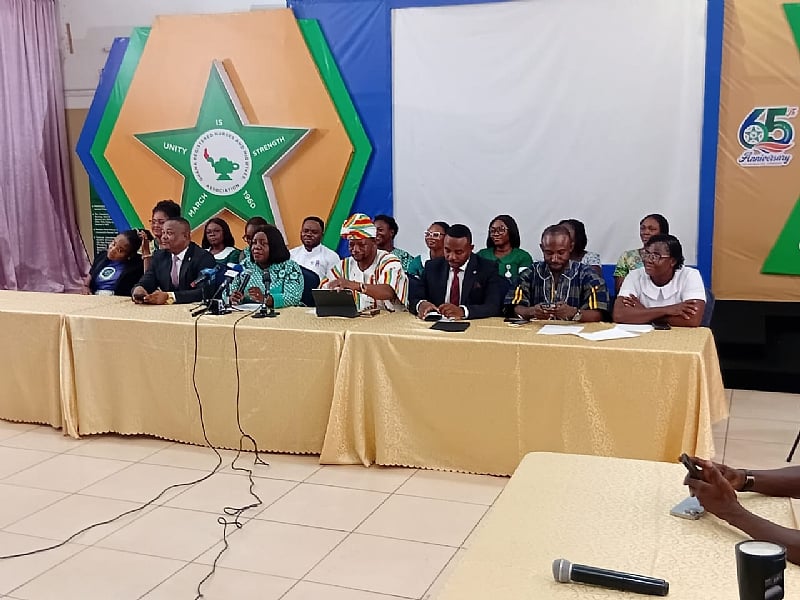The Ghana Registered Nurses and Midwives Association (GRNMA) has publicly expressed its profound disappointment and frustration with the government’s handling of their longstanding allowance claims. The Association argues that the government’s current proposal to include only two out of four crucial allowances in the upcoming mid-year budget review represents a significant breach of the collective agreement signed in May 2024 and a disregard for the vital contributions of nurses and midwives to the nation’s healthcare system. This perceived inequitable treatment, where other healthcare professionals seemingly enjoy benefits that nurses and midwives are denied, has fueled a sense of injustice and betrayal amongst the GRNMA’s membership. The Association is urging the government to reconsider its stance and fully honor the commitments made in the collective agreement.
The GRNMA’s primary demands for the mid-year budget review center on three key allowances: an 80% non-basic allowance, a uniform allowance, and a book and research allowance. These allowances, the Association argues, are essential for recognizing the demanding nature of their work, the need for professional development, and the associated costs of maintaining a professional appearance. While the government has indicated its willingness to consider two of these allowances in the mid-year review, the postponement of the remaining two – rural incentive allowance and on-call facilitation – to the 2026 budget has been met with strong opposition from the GRNMA. This delay, according to the Association, further exacerbates the feeling of being undervalued and disregarded by the government.
The GRNMA emphasizes that the collective agreement, signed in May 2024, clearly outlines these allowances as entitlements for nurses and midwives. The Association contends that the government’s failure to fully implement the agreement not only undermines the spirit of collective bargaining but also creates a climate of distrust and disillusionment among healthcare professionals. With over a year of the agreement’s lifespan already elapsed, the GRNMA stresses the urgency of incorporating all outstanding allowances into the 2026 budget to ensure their disbursement before the agreement expires. This timely implementation, they argue, is crucial for maintaining morale and motivation within the nursing and midwifery workforce.
The Association’s President, Mrs. Perpetual Ofori-Ampofo, has publicly voiced the deep-seated dissatisfaction among her members, highlighting the perceived unfairness within the healthcare sector. She argues that nurses and midwives, working alongside other healthcare professionals who enjoy similar benefits, are being denied their rightful entitlements. This disparity, she contends, not only demoralizes the workforce but also undermines the principle of equity within the healthcare system. Mrs. Ofori-Ampofo emphasizes that these allowances are not personal favors but rather earned benefits that recognize the dedication and hard work of nurses and midwives.
Mrs. Ofori-Ampofo has also made a direct appeal to President Mahama for his personal intervention in this matter. She underscores that the welfare of nurses and midwives is not simply a concern for union leaders but a matter of national importance. By ensuring fair treatment and adequate compensation for these essential healthcare workers, the government is investing in the health and well-being of the entire population. She argues that fulfilling the promises made in the collective agreement is not merely a gesture towards a specific group but a commitment to strengthening the healthcare system and improving the lives of all Ghanaians.
The GRNMA’s call for the inclusion of all outstanding allowances in the upcoming budgets represents more than just a demand for financial compensation. It is a plea for recognition, respect, and fair treatment for the dedicated professionals who form the backbone of Ghana’s healthcare system. The Association’s insistence on the full implementation of the collective agreement underscores the importance of honoring commitments and upholding the principles of fairness and equity in labor relations. By addressing the GRNMA’s concerns, the government can demonstrate its commitment to valuing and supporting the vital contributions of nurses and midwives to the nation’s health and well-being.














